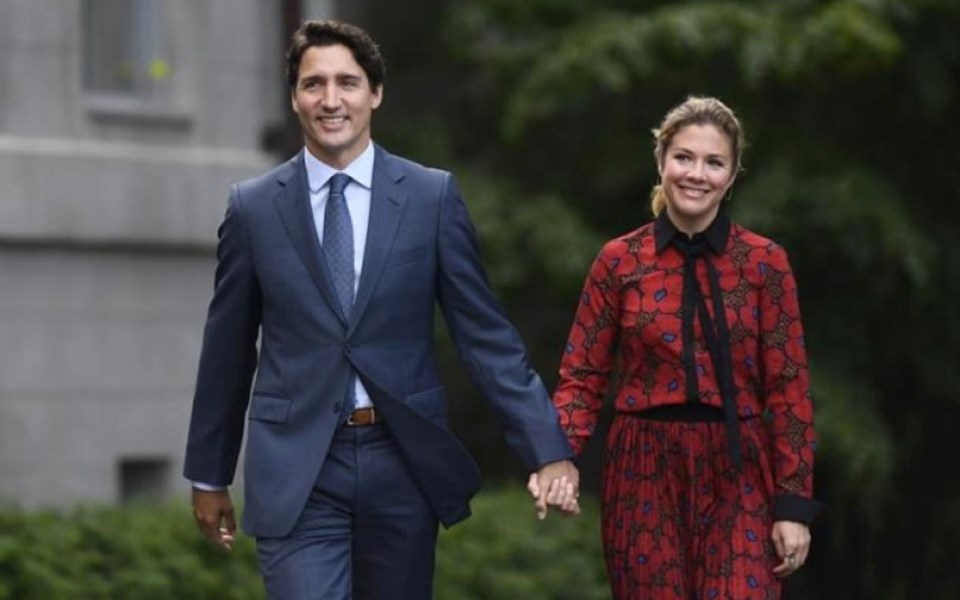OTTAWA — Prime Minister Justin Trudeau and his wife are in self-isolation over COVID-19 concerns, which has forced the cancellation of an in-person meeting of Canada's first ministers.
"I have some personal news to share today," Trudeau tweeted Thursday afternoon.
"Sophie recently returned from a speaking event in the UK, and last night she was experiencing mild flu-like symptoms. She's feeling better, but following the advice of our doctor she is self-isolating as we wait on COVID-19 test results."
Trudeau said "out of an abundance of caution" he is also self-isolating and monitoring until Sophie's results are returned.
"But I'll be busy working from home," he said on Twitter. "Today, I'll be speaking with some world leaders and joining ministers for a Cabinet committee discussion on COVID-19."
"I was looking forward to sitting down with premiers and Indigenous leaders later today, but given the circumstances we'll be postponing our meeting. In the meantime, we'll speak on the phone about how we can mitigate the spread and impact of COVID-19 and keep Canadians safe."
Trudeau himself is not exhibiting any symptoms, according to a written statement issued earlier in the day by his office.
Provincial and territorial leaders had been scheduled to meet for two hours late Thursday afternoon with Trudeau and national Indigenous leaders, followed by a day-long meeting of first ministers on Friday. Trudeau's office said they'll now talk to each other by phone and postpone the in-person meetings.
"Since the beginning of the COVID-19 outbreak, we have urged Canadians to take all necessary precautions and follow medical advice in order to stay safe. This is what the prime minister and his family are doing," the statement from the Prime Minister's Office said.
Trudeau had also been scheduled to attend an event at the Public Health Agency of Canada in Ottawa on Thursday morning, but that suddenly disappeared from his schedule early in the day.
On Wednesday, New Brunswick Premier Blaine Higgs cancelled his plans to attend the first ministers' gathering after the first case of COVID-19 turned up in his province. He urged the prime minister to conduct the meeting by teleconference — which is what will now happen.
Saskatchewan Premier Scott Moe, chair of the premiers, said in a statement that first ministers will hold a conference call on Friday.
Yukon's Sandy Silver had also cancelled plans to travel to Ottawa, after having attended a mining conference in Toronto, where one participant has since tested positive for the virus.
Trudeau and Ontario Premier Doug Ford also attended that conference.
Ford was already in the nation's capital for the first ministers' meeting. At a morning news conference Thursday, he called on all first ministers to put their differences aside and pull together to confront the health and economic fallout from the virus.
NDP Leader Jagmeet Singh was also in self-isolation Thursday.
In a tweet, Singh said he's at home "feeling unwell" and, although his doctor does not believe his symptoms are consistent with COVID-19, he was advised to "limit contact with the public until I am feeling better."
Most people diagnosed with COVID-19 experience mild or moderate symptoms, such as fever and cough, and the vast majority of those who contract the virus recover. The Public Health Agency of Canada says the risk to the general population is low. However, for some, including Canadians aged 65 and over, those with compromised immune systems and those with pre-existing conditions, the illness can be much more severe. Among the Canadians diagnosed with the illness so far, fewer than 15 per cent have required hospitalization.
This report by The Canadian Press was first published March 12, 2020.




